 |
|||||||||||||
|
|
|||||||||||||
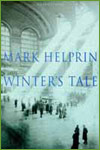  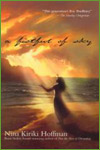 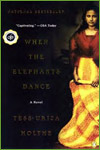 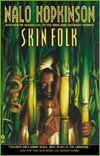  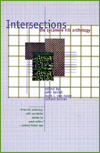 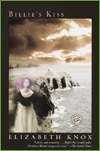
|
Continued... Helprin, Mark. Winter's Tale. (Harvest, 1995) A novel of New York City at the turn of the Millennium. But it's not entirely clear which Millennium, and why is everything so Victorian, and what about that mysterious town up the Hudson that you can't always find? Gorgeous prose, prickly, interesting characters, and a wonderful sense of the essence of New York. (Delia Sherman) Hoffman x 2: The River King, Alice Hoffman. (Berkeley, 2001) and A Fistful of Sky, Nina Kiriki Hoffman. (Ace, 2002) Alice Hoffman's lyrical, distinctive novels inhabit a border realm between domestic realism, mystery/detective fiction, and contemporary fantasy, with sideways nods to romance and Young Adult coming-of-age fiction. The River King is one of her best. Set on the campus of a private school in New England, it's a haunting, character-driven novel, both tragic and life-affirming. Nina Kiriki Hoffman (no relation to Alice) also prowls the borderland between domestic realism, contemporary fantasy, and Young Adult coming-of-age stories — and fans of either Hoffman ought to know about the other one. A Fistful of Sky, on the one hand, is a fantasy story about a family of witches and a girl with a troublesome gift; it's also a penetrating exploration of modern American life and family dynamics. (Terri Windling) Holthe, Tess Uriza. When the Elephants Dance. (Penguin, 2003) An extraordinary novel set in the Philipine Islands on during World War II. A family, hiding in the cellar, tell each other stories while they wait out the terror of the invasions of war, Boccaccio fashion. The stories encompass the wealth of human crisis, from love, survival, and family, to the jumble of historical forces, the Catholic church, colonialism, and the diverse cultures of the Phillipines. (Midori Snyder) Hopkinson, Nalo. Skin Folk. (Warner Aspect, 2001) This is a splendid collection of Interstitial stories from a Caribbean writer who now makes her home in Canada. Hopkinson borrows tropes from fantasy, science fiction, horror, realism, magical realism, and Caribbean folklore.(Terri Windling) Joyce, Graham. The Facts of Life. (Atria, 2003) This extraordinary English novels dwells in the interstices between mainstream fiction, historical fiction, dark fantasy, and suspense. It's a beautifully written, atmospheric, insightful story about seven sisters in Coventry during and after World War II. (Terri Windling) Kessel, John. Mark L. Van Name, Richard Butner, eds. Intersections: The Sycamore Hill Anthology. (Tor, 1995) Well before Conjunctions 39 or McSweeney's, the Intersections anthology presented some of the premiere interstitial sf and fantasy writers working today. What further sets it apart from most anthologies is the afterword written by each author about each story, discussing how it was workshopped, critiqued, and/or revised, offering a glimpse into the creative process itself. (Gregory Frost) Knox, Elizabeth. The Vintner's Luck. (Farrar, Straus & Giroux, 1998) An exquisitely written historical novel set in 19th century France among the vineyards of Burgundy, except wait a minute there's this angel who comes to visit the protagonist every year, and a subplot involving sexual desires so queer there aren't even any names for them, and lots about how you make wine. (Ellen Kushner) Knox, Elizabeth. Billie's Kiss. (Ballantine Books, 2002) Is it a romance? a mystery? an homage to 19th century gothics with a whiff of Robert Louis Stevenson — with a severely dyslexic heroine and a borderline autistic villain? Yes. (Ellen Kushner) Larson, Jeanne. Bronze Mirror. (Holt, 1991) A novel of ancient China written by a professional Sinologist. Multiple narratives, some of which take place on earth and some in the courts of the Jade Emperor of Heaven, braided together with scholarly meditations on foot-binding and concubinage and fate. A book that wears its learning lightly, and is as funny as it is enthralling. (Delia Sherman) Lethem, Jonathan. As She Climbed Across the Table. (Doubleday, 1997) Lethem effortlessly mixes genres in this novel of academic manners, Science Fiction, comedy, and Physics. Where else could one find two hapless professors groping for love, a black hole named "Lack" that selects what it chooses to keep and chooses to release on the table, and an alternative world of science, the university and love? (Midori Snyder) |
|||||
| previous page |1 | 2 | 3 | 4 | 5 | next page | ||||||